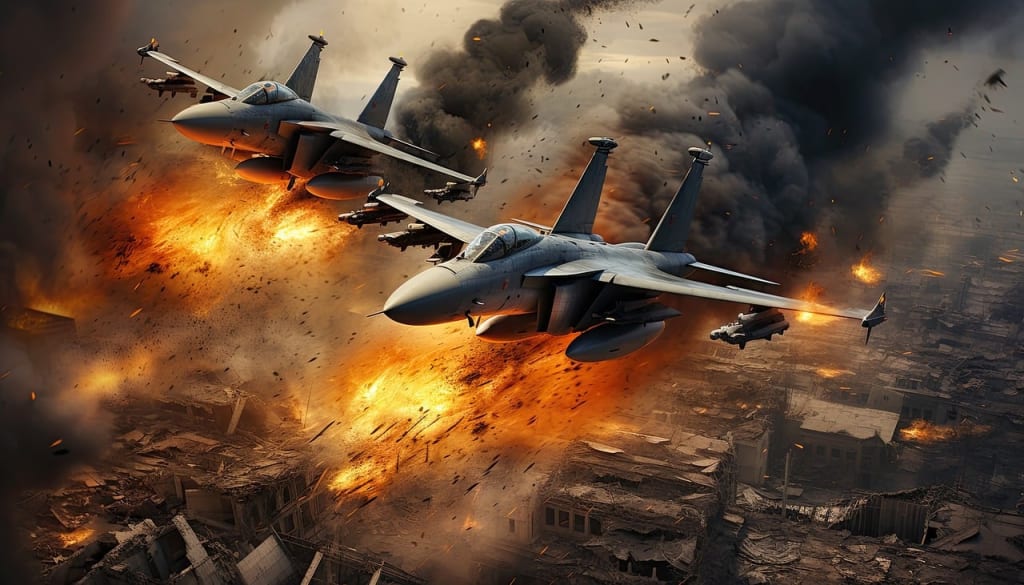Ongoing Tensions in the Middle East, Philistine latest news
The Global Landscape of Conflict

As of last update in January 2022, there hasn't been a war directly involving the historical Philistines, as they were an ancient people whose civilization thrived during the Iron Age. However, if you're referring to contemporary conflicts or a figurative usage of the term "Philistine" to describe a conflict or situation lacking cultural appreciation or sophistication, I can certainly provide a summary of recent global conflict news.
The Israeli-Palestinian conflict remains a longstanding and deeply entrenched issue in the Middle East. Despite intermittent efforts at peace negotiations, the situation on the ground continues to be marked by violence, political stalemate, and humanitarian suffering. The status of Jerusalem, the rights of Palestinian refugees, and the expansion of Israeli settlements in the occupied territories remain contentious issues that fuel tensions both within the region and on the international stage.
In recent years, Israel's relations with certain global powers, notably Iran, have exacerbated tensions in the region. Iran's support for militant groups such as Hezbollah and Hamas, as well as its pursuit of nuclear capabilities, has drawn condemnation from Israel and its allies. Tensions between Israel and Iran have escalated, with both sides engaging in covert operations, cyberattacks, and proxy conflicts across the Middle East.
Moreover, the broader geopolitical rivalry between the United States and China has indirect implications for Israel. As a close ally of the United States, Israel finds itself navigating complex diplomatic and economic dynamics amidst growing tensions between Washington and Beijing. China's expanding influence in the Middle East, particularly through its Belt and Road Initiative and economic investments, adds another layer of complexity to the regional geopolitical landscape.
In conclusion, while there isn't a direct confrontation between Israel and any entity representing the ancient Philistines, tensions between Israel and various global powers persist, influenced by historical grievances, geopolitical rivalries, and the complexities of the Israeli-Palestinian conflict. These tensions underscore the importance of diplomacy, dialogue, and international cooperation in addressing regional challenges and fostering stability in the Middle East
The Global Landscape of Conflict
Ongoing Tensions in the Middle East
In the Middle East, tensions persist on multiple fronts. The Israel-Palestine conflict, which has deep historical roots, continues to simmer despite intermittent ceasefire agreements. The struggle for territorial control, the status of Jerusalem, and the rights of Palestinians remain central issues. Both sides have experienced periodic escalations in violence, with clashes erupting in areas such as the Gaza Strip and the West Bank.
Civil Unrest in Various Regions
Civil unrest and conflicts plague several regions worldwide. In Yemen, a complex civil war fueled by regional power struggles and sectarian tensions has led to a humanitarian crisis of catastrophic proportions, with millions facing starvation and disease amidst ongoing fighting between Houthi rebels and a Saudi-led coalition.
In Syria, although the intensity of the conflict has diminished since its peak, the country remains fractured, with various factions vying for control. The humanitarian situation remains dire, with millions displaced internally and externally, struggling to rebuild their lives amidst the rubble of war.
Escalating Tensions Between Global Powers
Beyond regional conflicts, tensions between global powers continue to escalate, raising concerns about the potential for broader conflict. The rivalry between the United States and China, characterized by competition for economic dominance, technological supremacy, and geopolitical influence, has intensified in recent years. Frictions over trade, human rights issues, and territorial disputes, particularly in the South China Sea, have heightened the risk of confrontation.
Similarly, tensions between the United States and Russia persist, exacerbated by disagreements over issues such as arms control, cybersecurity, and territorial disputes in Eastern Europe. The annexation of Crimea by Russia in 2014 and subsequent involvement in Ukraine's internal affairs have strained relations between Moscow and Western powers.
Regional Flashpoints and Proxy Conflicts
Several regions serve as flashpoints for potential conflict, often fueled by proxy interventions and geopolitical rivalries. In the Persian Gulf, tensions between Iran and its regional adversaries, particularly Saudi Arabia and the United Arab Emirates, continue to escalate, driven by ideological differences, competition for regional influence, and disputes over energy resources.
In Africa, various conflicts persist, fueled by ethnic rivalries, political instability, and competition for resources. In countries such as Ethiopia, Sudan, and the Democratic Republic of Congo, internal conflicts have led to widespread displacement and humanitarian suffering.
Conclusion
While the term "Philistine" historically refers to an ancient people, its contemporary usage to describe cultural ignorance or lack of sophistication finds resonance in the ongoing conflicts and tensions around the world. From longstanding disputes rooted in history and religion to contemporary geopolitical rivalries and regional conflicts, the global landscape remains fraught with peril, highlighting the urgent need for diplomacy, dialogue, and international cooperation to prevent further escalation and foster lasting peace





Comments
There are no comments for this story
Be the first to respond and start the conversation.